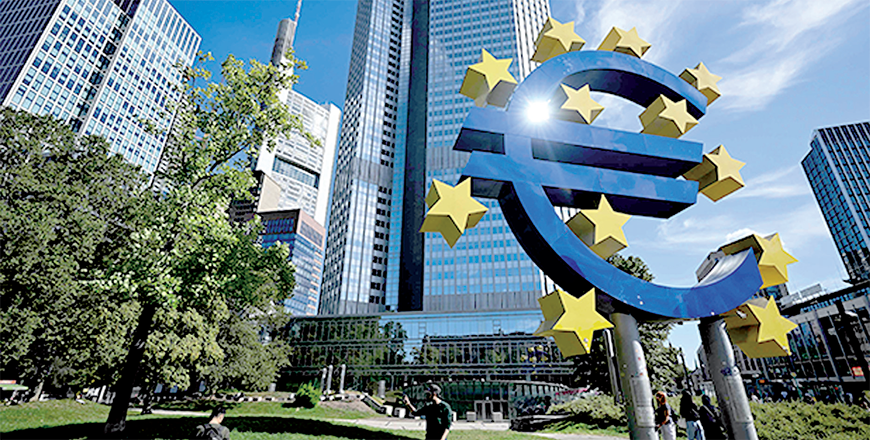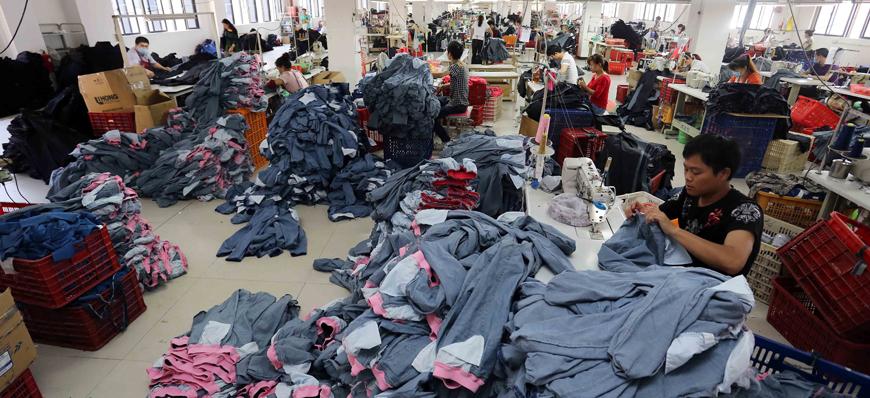You are here
'Unprecedented collapse' for eurozone businesses
By AFP - Mar 24,2020 - Last updated at Mar 24,2020

A view of the empty terminal 3 at Copenhagen airport Kastrup on Tuesday, where activities are limited due to the novel coronavirus (AFP photo)
BRUSSELS — Businesses in the eurozone suffered "an unprecedented collapse" in March because of the novel coronavirus pandemic, according to a closely watched indicator released on Tuesday by IHS Markit.
Provisional data showed the slump in activity in the 19-nation zone in March "far exceeding that seen even at the height of the global financial crisis," with the company's PMI survey diving to 31.4.
A reading below 50 points indicates a contraction. In February, the index had stood at 51.6. The latest reading for March is the lowest since IHS Markit started its PMI survey in 1998.
The indicator reflected a near-shutdown of eurozone economies as COVID-19 sweeps across Europe.
Major economies Italy, France, Germany and Spain are all deeply affected and have implemented severe social and business restrictions to try to slow the virus's spread, by keeping potential carriers at home.
The eurozone's economic struggle was worsened by some EU member states closing off their borders to neighbours, limiting the flow of goods and people within the single market.
Pessimism over year ahead
EU countries are starting to deploy massive state spending and loan guarantees to prop up businesses and employment, with the EU dropping its strict rules on budget deficits.
The IHS Markit survey showed the services sector was pummelled the worst, sliding to well below where it was at during the 2009 global financial crisis.
Manufacturing was also hit, supply chains were being badly degraded, and there was "a record fall in export business as cross-border trade flows seized up".
Employees are being let go at the fastest rate since June 2009.
"Expectations of future output also deteriorated markedly to reach an all-time low, with record degrees of pessimism about the year ahead seen in both manufacturing and services," IHS Markit said.
"Clearly there's scope for the downturn to intensify further as even more draconian policies to deal with the virus are potentially implemented in coming months," chief economist Chris Williamson said.
Economic analysis firm Capital Economics said the PMI collapse was "so sharp that at any other time it would look like a spreadsheet error".
It agreed that "April's data could be even worse" and pointed to the eurozone's 2020 first-quarter GDP plunging by at least three per cent compared with the last three months of 2019.
"That would be similar to the sharpest quarterly fall in GDP during the global financial crisis," it said.
The startlingly bad PMI indicator heaped more pressure on eurozone finance ministers who were to meet via videolink later Tuesday to consider coordinated ways to blunt economic fall-out from the pandemic.
'Ground to a halt'
Analysts at bank ING said the IHS Markit survey "paints a picture of an economy that has ground to a halt".
But while it demonstrated the wide and sudden impact of the coronavirus, it "doesn't tell us much about the depth of the decline".
ING added: "It's still anyone's guess how deep this actually is.
"The question is how much policy makers can soften the blow. Perhaps most relevant is how much unemployment and bankruptcies can be avoided to determine the possible steepness of a recovery."
Related Articles
BRUSSELS — The eurozone economy returned to growth for the first time in six months in March, a closely watched survey said on Wednesday, as
BRUSSELS, Belgium — The growth of business activity in the eurozone slowed down in June after the manufacturing sector posted its biggest de
BEIJING – The outlook for the global economy became bleaker on Wednesday as signs of a deeper downturn in China emerged, despite massive pol













